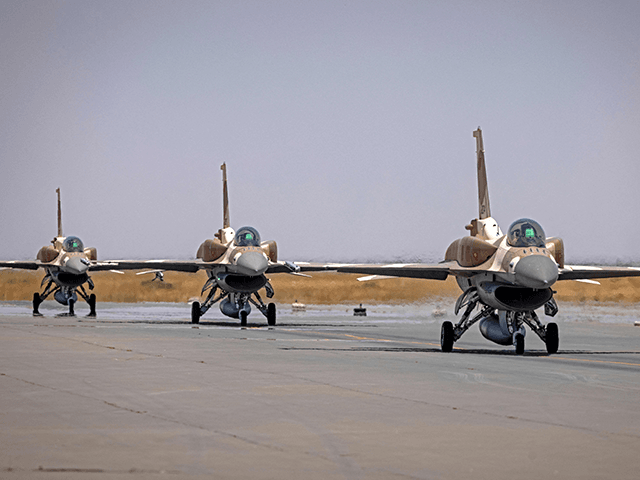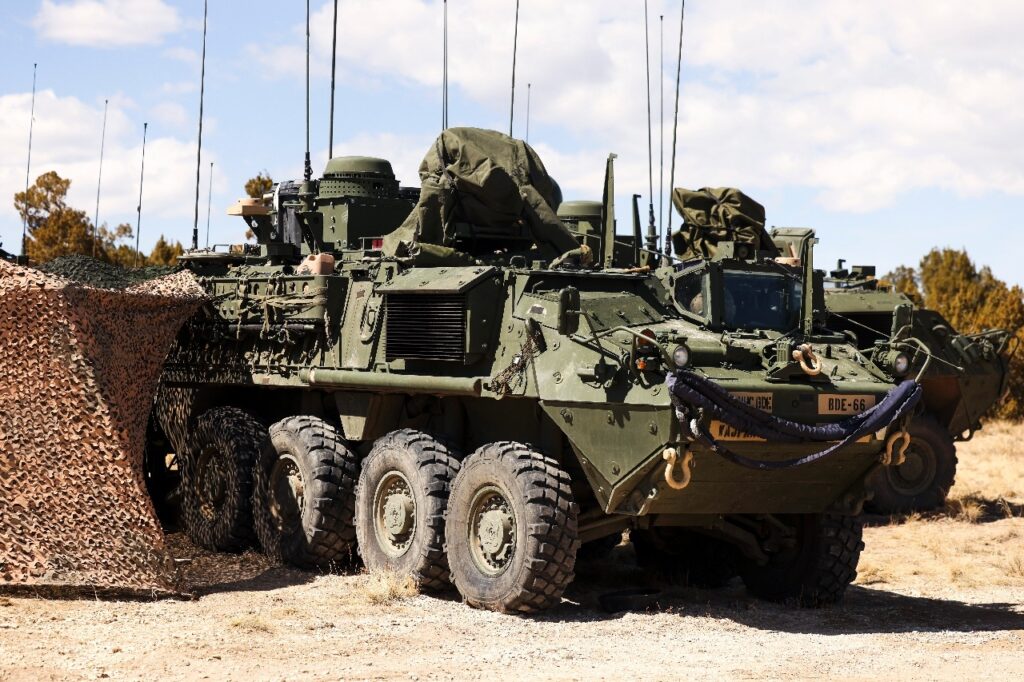The Biden administration on Tuesday rolled out a plan called the U.S.-India Initiative on Critical and Emerging Technologies (iCET), which includes a proposal for India to begin producing military jet engines designed by General Electric.
U.S. National Security Adviser Jake Sullivan met with Indian National Security Adviser Ajit Doval on Tuesday before announcing the initiative in a press conference. Sullivan acknowledged that strategic challenges from China and Russia were a factor behind deepening America’s partnership with India, but he also portrayed iCET as a solid “bet” on the growing Indian economy.
“The China-Russia factors are real, but so is the idea of building a deep, democratic ecosystem of high technology. So geopolitics doesn’t sit off to the side, but it’s not a comprehensive explanation for what’s at work here,” Sullivan said.
One of the strategic objectives of the plan is to lessen India’s reliance on Russia for military hardware, a dependency that stretches back for decades. About 60 percent of India’s military gear is Russian-made, and the percentage is even higher in the Indian air force. Not only has this relationship become politically awkward after Russia’s brutal invasion of Ukraine, but the Ukrainian conflict has not exactly been a great advertisement for the quality of Russian weapons.
Sullivan highlighted a GE proposal for joint production of military jet engines in India as a prime example of what iCET could accomplish.
“This is going to be a transformational opportunity for multiple aircraft and has potential to be a real game changer, to the extent we really haven’t done this anywhere else,” a senior administration official told the Washington Post.
Other proposals for U.S.-India cooperation on producing the M777 howitzer and Stryker armored fighting vehicle would further the cause of making India less dependent on Russian weapons systems.

Ukrainian gunmen fire a U.S.-made M777 howitzer from their position on the front line in Kharkiv region on August 1, 2022. (SERGEY BOBOK/AFP via Getty Images)
Another strategically valuable possibility would be partnering with India to produce semiconductors and telecom equipment that could compete with Chinese firms like Huawei in global markets. Bolstering the Indian semiconductor industry would have the useful benefit of protecting the supply chain against a possible Chinese invasion of Taiwan.
The Financial Times (FT) on Tuesday quoted a U.S. official who predicted 2023 could become “the most consequential year in U.S.-India diplomacy,” as India’s concerns with Russia, and outright hostility with China, push it more firmly into the American orbit.
FT’s source made the interesting point that China’s violent border clash with India in the Himalayas in 2020 “had a kind of 9/11, Pearl Harbor-style impact” on India’s strategic thinking. No shots were fired during the battle in question, but dozens of Indian and Chinese soldiers were killed in hand-to-hand combat.
![This video frame grab taken from footage recorded in mid-June 2020 and released by China Central Television (CCTV) on February 20, 2021 shows Chinese (foreground) and Indian soldiers (R, background) during an incident where troops from both countries clashed in the Line of Actual Control (LAC) in the Galwan Valley, in the Karakoram Mountains in the Himalayas. (Photo by - / CCTV / AFP) / China OUT / RESTRICTED TO EDITORIAL USE - MANDATORY CREDIT "AFP PHOTO / CHINA CENTRAL TELEVISION (CCTV) " - NO MARKETING NO ADVERTISING CAMPAIGNS - DISTRIBUTED AS A SERVICE TO CLIENTS / The erroneous mention[s] appearing in the metadata of this photo by - has been modified in AFP systems in the following manner: [February 20, 2021] instead of [January 20, 2021]. Please immediately remove the erroneous mention[s] from all your online services and delete it (them) from your servers. If you have been authorized by AFP to distribute it (them) to third parties, please ensure that the same actions are carried out by them. Failure to promptly comply with these instructions will entail liability on your part for any continued or post notification usage. Therefore we thank you very much for all your attention and prompt action. We are sorry for the inconvenience this notification may cause and remain at your disposal for any further information you may require. (Photo by -/CCTV/AFP via Getty Images)](https://media.breitbart.com/media/2021/05/Report_-China-Rebuilding-Military-Presence-Along-Indian-Border-1024x768.jpg)
This video frame grab taken from footage recorded in mid-June 2020 and released by China Central Television (CCTV) on February 20, 2021, shows Chinese (foreground) and Indian soldiers (R, background) during an incident where troops from both countries clashed in the Line of Actual Control (LAC) in the Galwan Valley, in the Karakoram Mountains in the Himalayas. (-/CCTV/AFP via Getty Images)
In addition to its border security concerns, India has also been pursuing opportunities to win international manufacturing business away from China, after China’s human rights abuses and manic coronavirus lockdowns made many corporations nervous about fragile supply chains running exclusively through China.
Some skeptical observers told the Washington Post that India might be leery of compromising its flourishing industrial and military independence by getting too close to the U.S., and India’s tax and regulatory laws could make some iCET projects less attractive to American companies.
Indian politics could also make closer cooperation tricky – as in the current row over a BBC documentary on Prime Minister Narendra Modi, which the Indian government has denounced as hostile foreign propaganda and censored with methods that make Western free-speech advocates very uncomfortable. Russia moved very quickly to endorse Modi’s handling of the film, perhaps sensing an opportunity to shore up its relationship with India.


COMMENTS
Please let us know if you're having issues with commenting.